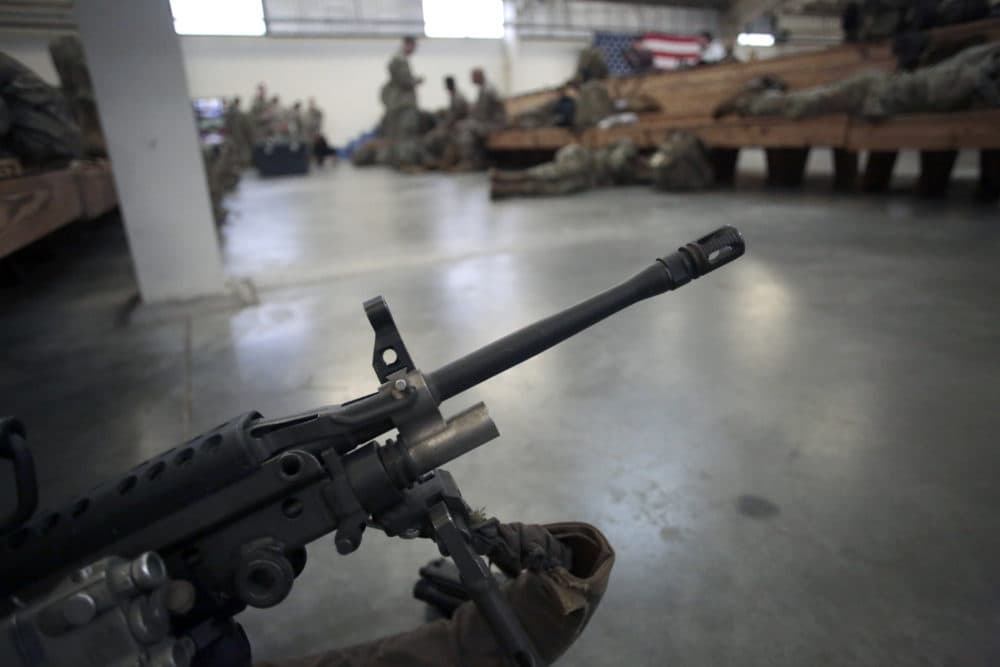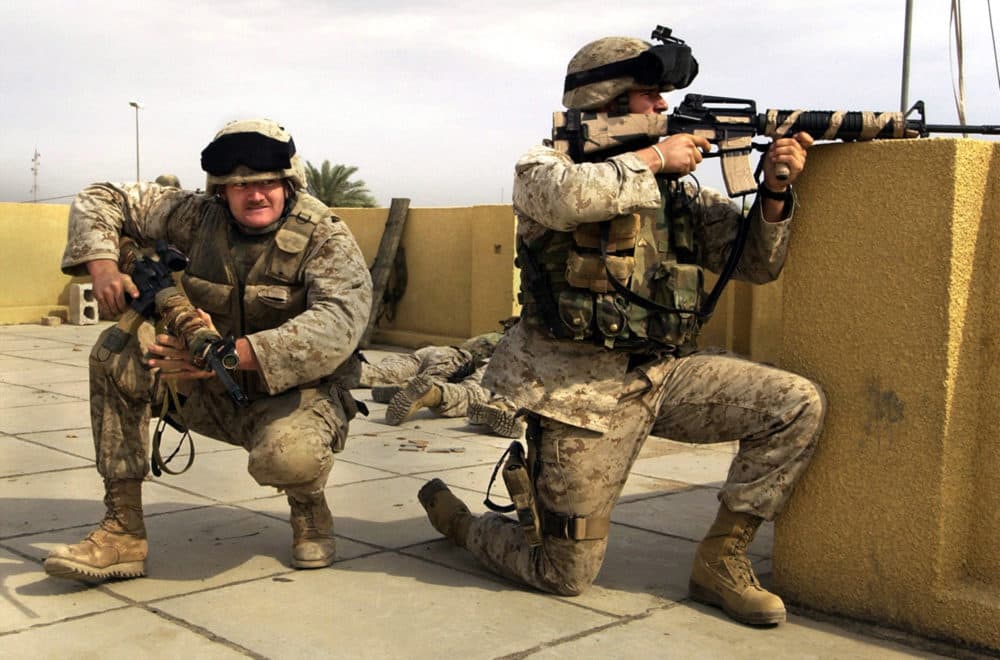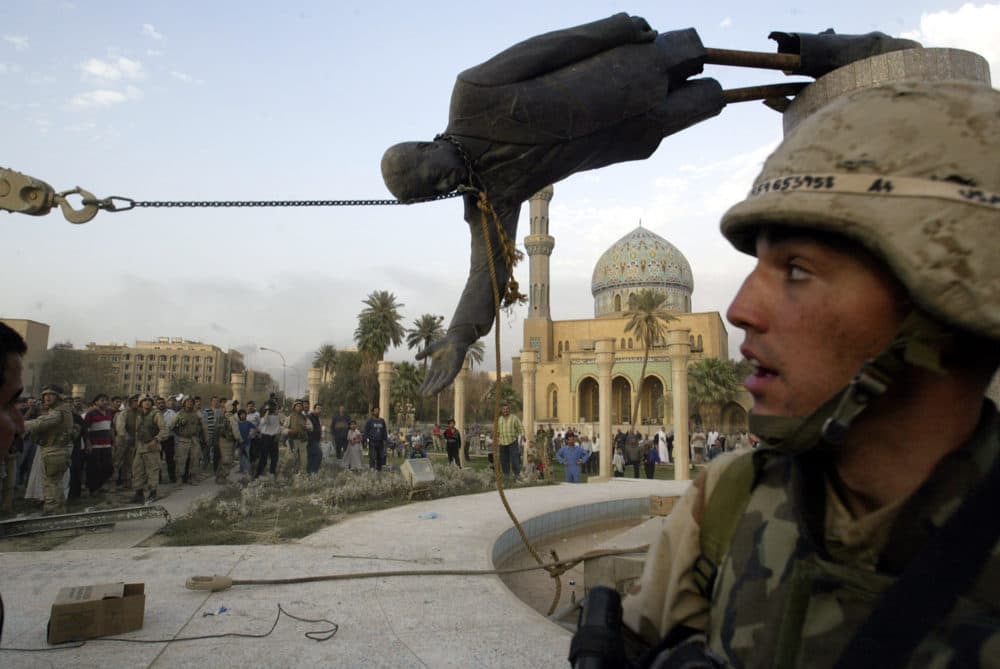Advertisement
Commentary
Kill Or Be Killed Is No Strategy

The Trump administration’s decision to kill top Iranian general Qassem Soleimani illuminates one of the most recurrent and self-destructive fallacies of strategic thinking: that our enemies act as they do because of their “nature,” while we act as we do because we face serious structural or environmental constraints.
This short-term thinking and “fundamental attribution error” has only intensified throughout our history. And it’s possible to anticipate some of its most likely and fearful consequences.
The United States interacts with other states across three dimensions: armed force, trade and diplomacy. Like most states, it has institutions associated with each dimension of interaction (e.g. a war department, a state department and a department of commerce). Unlike most states, however, since its founding, the United States has come to rely more heavily on armed force.
The Cold War led to an escalation in the United States’ willingness to lead with armed force, because by 1948, most Americans had become convinced that “communists” were inherently aggressive and bent on U.S. and eventually global domination. What use would diplomacy be if that were true? On the contrary, leading with armed force against communists would make sense.
Up until 2001, there were no bad peoples, only bad leaders. This all changed in September of 2001.
But, suppose our premise was all wrong. What if our adversaries were mainly frustrated nationalists who yearned to run their own affairs, and posed as communists (or tolerated communists) to gain sufficient resources to achieve their independence? Our tendency to attribute the motives of insurgents in the colonies of our allies to communism, and further, to assume that all communists were slaves to Soviet ambition, led to the quagmires of Indochina and Vietnam.
But the Cold War tendency to disparage diplomacy and expand military interventions was tied to a broader grand strategy of containment: the United States, with help from allies, would use its postwar military, economic and ideational advantages to prevent communist states from expanding. Eventually, these states would be toppled by revolt from within, collapsing under the weight of their own hypocrisy and brutality. Up until 2001, there were no bad peoples, only bad leaders. This all changed in September of 2001.
Consider that the U.S. has undertaken over 500 international military interventions since the country’s founding, with nearly 60% between 1950 to 2017. Moreover, more than one-fourth of these interventions have occurred in the post-Cold War era. Compared to the previous 22 decades, in just two decades 25% of interventions have occurred — and most critically at a time when the U.S. faced no states or coalitions of states capable of conquering it.
Advertisement

Since 9/11 the tendency to view peoples as bad — e.g. Trump’s ban on Muslims — and their leaders as irrational haters, has led to even greater reliance on the use of armed force, and a withering away of diplomacy. Again, why even try to negotiate with a jihadi?
It was the George W. Bush administration that led the way: no longer will Americans wait to be attacked. Instead, our new grand strategy is to pre-empt violence with violence. Since we know they only live to kill us, why wait? Moreover, if killing us is all they aim to do, how can killing them first be unlawful or wrong?
We now live in a world of kinetic diplomacy. It’s a world in which we cease asking why Iran is trying to kill our people, or our allies’ people, and simply assume that’s what they want now and forever more. This narrows strategic discussion to a simple set of questions, which themselves reduce to when and under what circumstances it’s prudent to do what we must do anyway, which is kill them.
[O]ur new grand strategy is to pre-empt violence with violence. Since we know they only live to kill us, why wait?
More importantly, it is a world in which the United States is acting unlawfully and unilaterally. As a consequence, our use of force — once widely viewed with a mix of awe and gratitude (if not tolerance) — is now widely seen by our allies as illegitimate or as bullying at best. The U.S. is now seen as a major threat around the world.
Soleimani was an accomplished killer and his resort to violence through proxies was illegitimate. Yet we must remember that Iran is trying to counter a nuclear armed U.S., which has overthrown and occupied a fair number of countries (including Iran).
If the U.S. is ever to return to its important leadership role — its role as an admired supporter of human rights, global prosperity and international security — it needs to ask why its current adversaries became adversaries in the first place.

